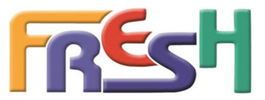|
Fact-Finding Survey & Policy/Curriculum Analysis
Several members of the FRESH Partnership are undertaking a global fact-finding survey and collection/analysis of policy/curriculum documents from all countries and states/provinces. Lead organizations in this initiative include UNICEF, UNESCO, ISHN and other organizations.This summary of the project provides an overview. The purpose of this initiative is to provide a factual, global report that can be used as a benchmark for countries in their continuous improvement planning as well as a start to UN agency monitoring efforts related to the Sustainable Development Goals. The global report will include a tabulation of all survey responses as well as separate reports on the responses from low resource, high resource and conflict/disaster-affected countries. The policy, curriculum and other documents collected from this survey of all countries and states/provinces will be posted in the UNESCO Health Education Clearinghouse. The individual responses from the education and health officials in each jurisdiction will be kept confidential to encourage realistic assessment of the status of policies and programs so that progress can truly being made from there. The Fact-Finding Survey Wherever possible, the questions in the survey have been correlated with existing self-assessment tools, surveys and reports published by various UN agencies and other credible sources. The questions have also been situated within the FRESH Framework of core components and cross-cutting themes. The topic of Food & Nutrition is examined within the survey as a sample issue, but the survey does not address the many other topics/themes that can be addressed using multi-component approaches and multi-intervention programs. In practice, the daily work in school-based and school-linked promotion of educational success, health and social development is often focused on issues and programs. In this survey, we focus on the status the core components of policy, education, services and physical/social environment. We broaden that lens slightly to include now well-established concepts related to context, implementing, maintaining, scaling up and sustaining programs, building system/organizational capacity, mainstreaming policies within the core concerns of the education system and incremental systems-focused actions or changes. The survey will:
Collection & Analysis of Policy, Guidance & Curriculum Documents related to HPSD Education The content analysis of this extensive collection of documents will examine If and how Health, Personal & Social Development (HPSD) education is intended to promote health literacy, life skills & social inclusion in country and state/provincial core HPSD-related curricula/subjects and in any published plans to coordinate the many types of extended educational opportunities such as extra & co-curricular activities, school routines, after-school, community-based and on-line learning programs. The FRESH Working Group on Health Literacy, Life Skills and Social Inclusion and the parallel International Research Network created by the World Education Research Association will analyze (over several months and with different groups of researchers) the relevant policy and curriculum documents from all countries and states/provinces regarding health and personal & social development education with additional analyses on food & nutrition and preventing violent extremism/promoting social inclusion. The documents will be stored in the UNESCO Clearinghouse on Health Education for researchers to access and assess. The IRN will form teams of researchers interested in different aspects of HPSD education.If you are interested in being part of one of the analysis teams, contact [email protected] The analysis on HPSD education will ask:
The content analysis will be similar to a recent OECD analysis of PE curricula in 16 HRC’s and to a Brooking’s preliminary analysis of 21st Century Learning skills The analysis on social inclusion will emulate an EU analysis and several reviews measuring social & emotional learning. Other analyses will be done on school food & nutrition |
Announcements and Materials from the Survey and Analysis
The following draft and finalized materials have been produced by this project:
|
